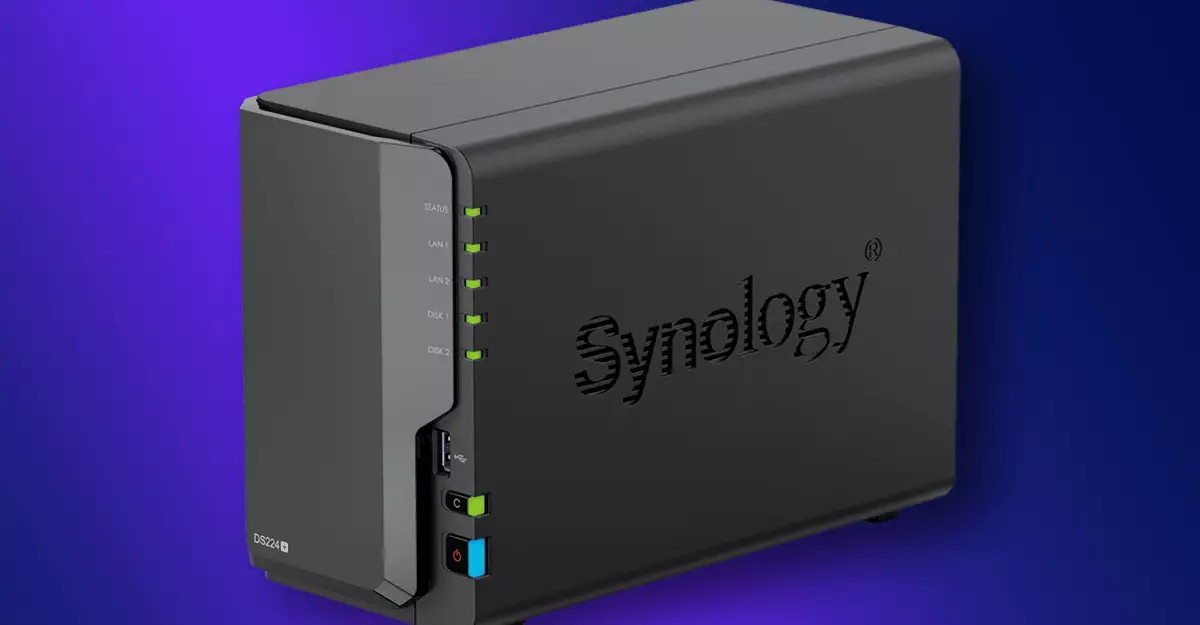Recently, Synology announced upcoming restrictions on the use of third-party hard drives in its future network-attached storage (NAS) systems, raising eyebrows and concerns among tech enthusiasts and IT professionals alike. This marks a significant shift in the company’s approach, as it aims to bolster the reliability and performance of its storage solutions. However, while existing Synology NAS models remain unaffected, the impending changes for new releases signal a strategic move that will undoubtedly reshape consumer choices in the marketplace.
Background of Synology’s Decision
Synology’s plans involve limiting the compatibility of future NAS devices to only those hard drives that are either Synology-branded or have been certified by the company. This initiative will officially kick in with the release of the Plus Series models in 2025. They have communicated this forthcoming change through an EU press release, emphasizing their commitment to enhancing product reliability by observing a more rigorous validation process for drives used in their systems.
The company’s rationale stems from extensive internal testing, which reportedly found that certified drives posed a significantly lower risk of failure and compatibility issues. This stance suggests that, for Synology, prioritizing performance over consumer autonomy is a necessary trade-off. While the argument for enhanced reliability is well taken, one cannot dismiss the potential ramifications for cost-conscious consumers who now face a narrower selection of hardware options.
The Implications for Users
For current users of Synology NAS devices, the announcement is a double-edged sword: they will remain unaffected by these restrictions, meaning their existing setups can continue to leverage a variety of hard drives without facing compatibility issues. However, the message seems clear: future buyers will need to tread carefully. Universe of options typically leads to competitive pricing, allowing users to seek out the best deals or to optimize their setups according to personalized needs. The new restrictions diminish that opportunity and force users to settle for a narrower landscape of expensive Synology-approved drives.
The impact on typical use cases, such as backing up household data or operating local media servers, may deter some potential customers, driving them to reconsider their storage solutions altogether. Casual users, who may not possess deep technical knowledge or the inclination to engage with restrictive ecosystems, could see Synology’s new strategy as alienating. Gearing devices towards hardware homogenization runs the risk of limiting creativity in configurations and could turn some segment of the user base off.
Comparative Industry Reaction
In the context of technology, many companies have faced backlash for similar restrictions in previous years. For instance, inkjet printers notorious for blocking third-party cartridges sparked outrage once a software update restricted consumers’ ability to save money on consumables. Synology seems to have recognized this potential fallout, as they’ve opted for a more measured approach with their restrictions. Still, the community remains wary of such moves, which navigate the perilous waters of fan loyalty and user freedom.
It’s important to emphasize that content creators and tech-savvy enthusiasts who thrive on DIY solutions and flexible setups could find these restrictions especially aggravating. A vibrant ecosystem fosters innovation and competition; thus, narrowing compatible options could potentially stifle growth and labor the diverse landscape of computing solutions.
As Synology embarks on this journey towards more stringent compatibility standards, it finds itself at a crossroads. The trade-off between reliability and user autonomy looms large. The company’s newfound path prioritizes performance over choice, forcing customers to ponder whether the potential gains in system reliability justify the lacking flexibility in hardware selections. Given the stakes, shifting consumer sentiment could steer the company to revisit or refine its policies in response to rapid market dynamics and user feedback. In a world increasingly demanding transparency and choice in technology, Synology’s decision could very well become a defining moment in its brand narrative and future trajectory.

